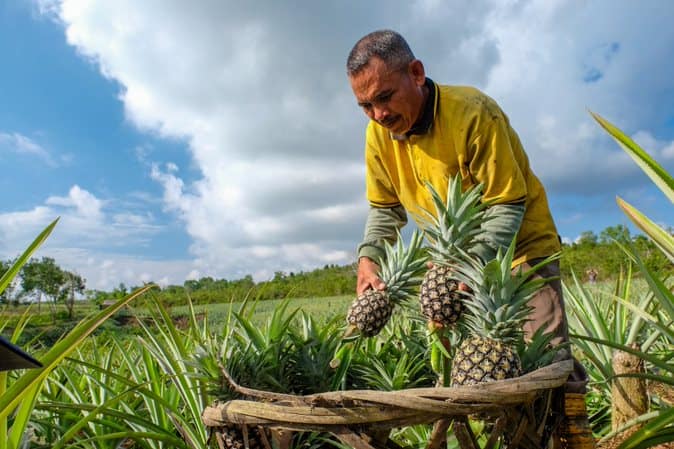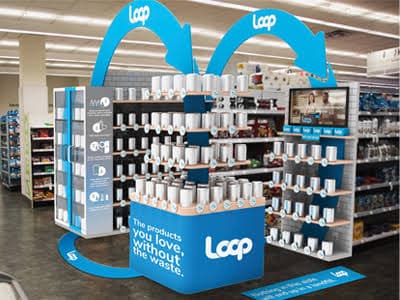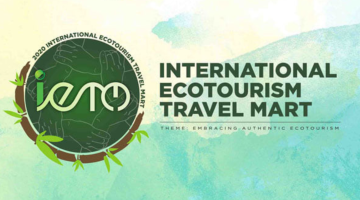POSTED Jul 01, 2022 - 05:32 PM
Farm To Table: 4 Ways To Make Food Production More Sustainable
Companies are increasingly exploring ways to reduce agri-food systems emissions across the supply chain: from production and manufacturing to the transportation of their products.
From ready-to-drink sachets to single-origin espresso pods, coffee brands are making an effort to make their products, or at least make them seem, more sustainable. According to a study by London-based market research firm Mintel Group, nearly half (48%) of all new coffee product launches in 2020 boasted at least one ethical or environmental claim, up from 25% nearly a decade ago in 2012.
Aside from the coffee industry, this trend has also been observed in many product segments in the food sector. Companies are increasingly exploring ways to reduce emissions from producing, manufacturing, and transporting their product. Here are some of the ways businesses can reduce agri-food systems emissions across the supply chain:
Sustainable Farming: Science-based food production and organic farming
Both public and private stakeholders promote smart farming with the aid of robots, drones, AI, machine learning, and even blockchain for harvesting and crop and soil management. Data science firm Thinking Machines, for example, builds and customizes AI and data solutions for sustainable food production. In one project, they used computer vision and satellite images to identify fish and shrimp ponds in Southeast Asia that can be sustainably transformed and restored with mangroves.
Another option for sustainable farming is organic farming. It promotes an environmentally, socially, and economically sound production of food and fibers and excludes the use of synthetically produced components. In the Philippines, organic farming is on the rise and has been institutionalized through Republic Act 11511 of 2020. As of 2018, at least 5% of Philippine agricultural land is organic and more consumers prefer local organic food products.

Developing eco-friendly cold chain facilities
An effective cold chain is indispensable to a functional food system. In Asia, 90% of food loss and waste occur in the processing and distribution phase, highlighting the need for adequate cold storage facilities. However, cold chain systems also need to be more eco-friendly so as not to release additional harmful emissions to the environment.
In 2020, the United Nations Industrial Development Organization (UNIDO) launched the project “Global Partnership for Improving the Food Cold Chain in the Philippines” geared specifically toward developing sustainable cold chains. Project leader Engr. Gilda Garibay stressed that cold chain practices, from the farm or sea to the market, must be consistently efficient. “Any break in the cold chain system due to transport, infrastructure constraints, or absence of pre-cooling facilities in farms or cold storage in public markets, will drastically decrease food quality and increase food losses.”
Food Packaging: Recycling and Upcycling
Packaging also plays a crucial role in the sustainability of the food sector. The widespread use of disposable packaging has been a major roadblock for decades. However, there is an increasing demand by consumers for alternatives to plastic. Innovative recycling company TerraCycle, through its project Loop, is just one of the many businesses and organizations that have decided to cater to this steadily growing market.
With Loop, TerraCycle aims to eliminate waste by promoting recyclable packaging and creating a network of retailers, restaurants, courier locations, and municipalities where consumers can return food containers, enabling reuse at scale. More Filipino micro, small, and medium enterprises (MSMEs) are also heeding the call with the use of local and biodegradable materials like banana leaves, abaca, and sugarcane fiber.

Food Processing: Exploring plant-based meat options
Food processing is another stage in the supply chain most influenced by consumer taste and behavior. While veganism has been around for quite some time, recent science and technological developments have paved the way for massive improvements in the quality of plant-based alternative meats.
Plant-based meat has become an attractive food option among eco-conscious consumers. In a way, the trend towards sustainability has strengthened the demand for plant-based meats, on top of other issues it addresses like health and animal welfare.
Transitioning to sustainable food systems entails transforming every component of the supply chain. As emissions and food waste occur at each stage, every stakeholder takes greater loss as the product moves downstream. While sustainability poses a daunting challenge to the agri-food sector, embracing it outweighs its cost and stands to benefit us more in the long run.
Read more

A bagful of hope for Mother Earth CITEM partners with Oikos Philippines
Only a few weeks left before IFEX Philippines 2024 brings the food community a salu-salo to find the... Learn More

Healthy snacking as a wellspring for sustainability
Re-imagining nutrition and sustainability in today’s instant gratification society Learn More

CITEM joins world’s 1st eco-tourism travel mart
DTI's export promotions arm eyes to showcase sustainable brands Learn More

Making recycling accessible is this PH brand's business goal
by Daniel Asido Learn More
